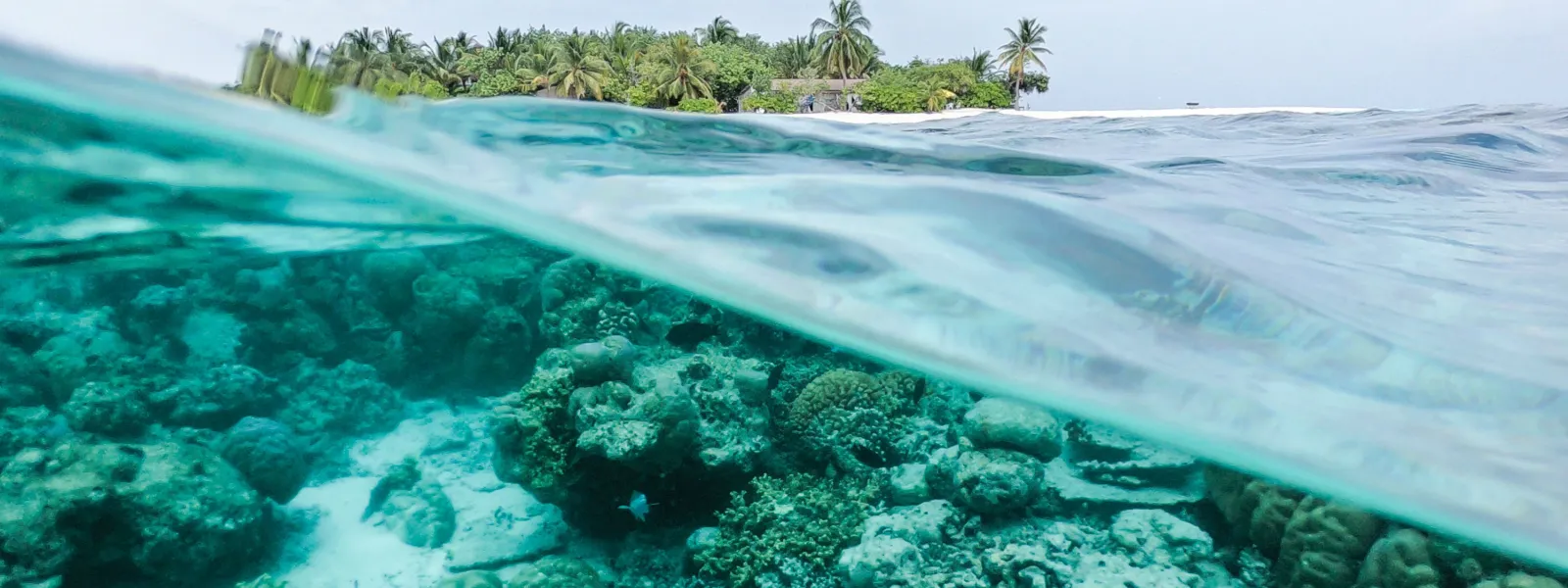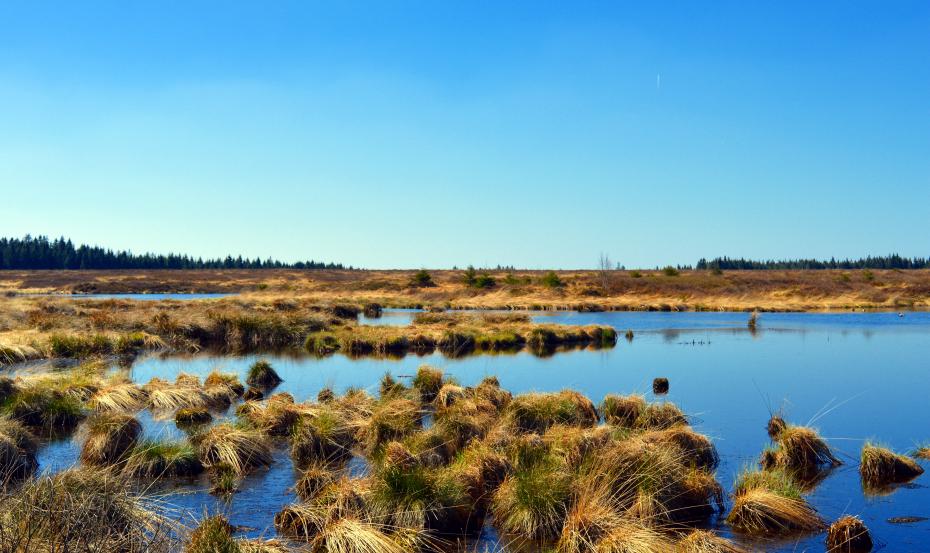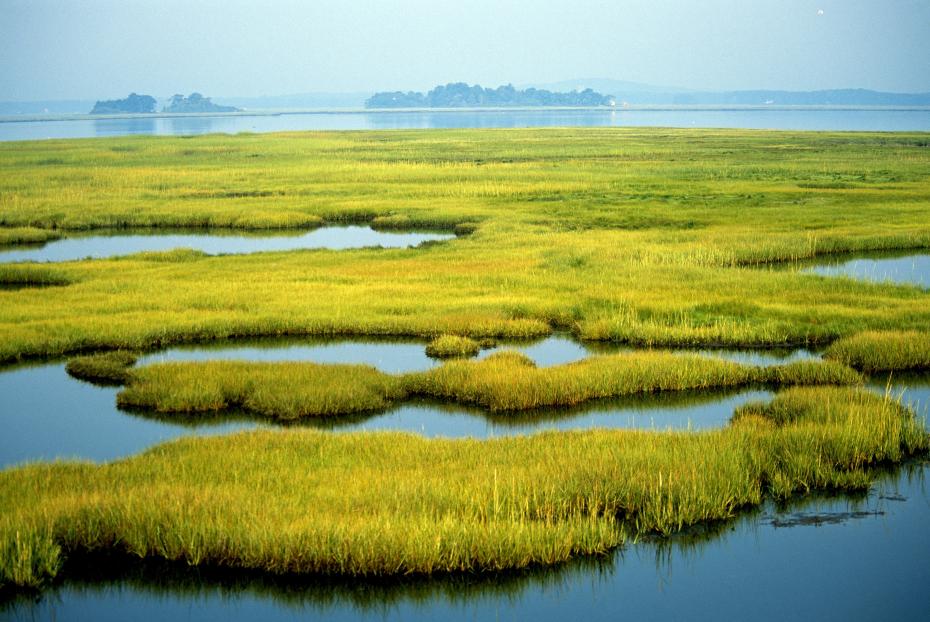
Putting my heart in the conservation of wetlands
Photo: Ishan Seefromthesky / Unsplah.Coral reefs are my favorite wetlands. They’re full of so many colors and shapes, and simply teeming with life.
When I’m underwater, my heart is full of peace and excitement, as I see myself surrounded by so many forms of life, so many species living together.
As a marine biologist, I’ve had the opportunity to scuba dive in a variety of countries and see many of these beautiful ecosystems up close. Of all my dives, the ones I enjoyed most were those I did—for work and for pleasure—in the Bay Islands of Honduras.
As a recent college graduate and volunteer with the Atlantic and Gulf Rapid Reef Assessment Program, I was in charge of monitoring the countless organisms that live in or on the reefs—seaweed, sea urchins, lobsters, queen snails, and so many others.
Without a doubt, my time diving in the Cayos Cochinos sparked my personal and professional journey. Since then, I’ve set out to protect these magical ecosystems, vital to all life this planet.
My current role, as scientific advisor to AIDA, uses science to strengthen the legal arguments employed to protect these and other at-risk natural environments in Latin America.

Wetlands, vital and at-risk
In addition to coral reefs, wetlands—characterized by the presence of water—include lakes and rivers, underground aquifers, swamps and marshes, grasslands, peat bogs, estuaries and deltas, mangroves, and sea grasses.
Wetlands act as the “kidneys” of the planet because they recycle water and waste, retain sediment and nutrients, reduce erosion, and absorb carbon dioxide from the atmosphere, in turn mitigating climate change.
However, it’s estimated that since 1700 we’ve lost nearly 87 percent of our wetlands at a speed three times greater than the loss of our natural forests. This has caused a drastic reduction in biodiversity, affecting 81 percent of continental species and 36 percent of marine and coastal species.
Among the greatest threats to our wetlands are contamination by garbage, wastewater and industrial pollution; changes in land use; agricultural runoff, erosion and climate change.
What’s more, global warming is increasing the temperature of the oceans, raising sea levels, and melting the poles. According to the Intergovernmental Panel on Climate Change, an increase of 1.5°C in global temperature could kill almost 90 percent of the world’s coral reefs—an irreversible and heartbreaking loss.

Taking action to save wetlands
Given this frightening global scenario, urgent action is required to protect our planet’s wetlands. In fact, there are many ways we can begin to do so immediately, such as:
- Creating restoration campaigns for vital ecosystems like mangroves and coral reefs.
- Declaring natural protected areas, to conserve wetlands and the species that depend on them.
- Developing policies that allow for the rational use of wetlands, where conservation is prioritized.
- Prohibiting the destruction of these ecosystems in any type of project, be it tourism, development or infrastructure.
- Establishing water treatment plans to prevent drainage and runoff from contaminating wetlands.
Every year, on February 2, we celebrate World Wetlands Day, commemorating the signing of the Ramsar Convention, the only intergovernmental treaty for the conservation and rational use of our planet’s wetlands.
This year’s celebration is focused on wetlands and climate change, inviting us all to reflect on the value of our wetlands, the critical services they provide, and urgency with which we must protect them. We are not powerless in the face of climate change. Saving our wetlands may just be the first step toward saving our planet, and ourselves.
María José González-Bernat

María José González-Bernat is director of AIDA's Ocean Program. She works from Bogotá. María José is a biologist with a Masters in Marine Science from the University of Otago, New Zealand, and a Ph.D. in Governnace from the University of Western Australia. She has experience in the conservation and management of marine ecosystems, climate change, marine-coastal governance and policies, as well as the effective management of marine protected areas. She has worked with non-profit organizations and in Guatemala's public sector, primarily in research and issues related to marine protected areas.
